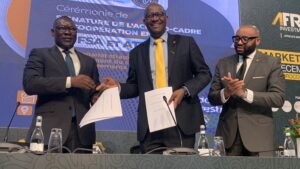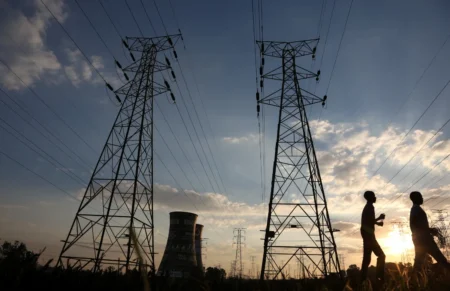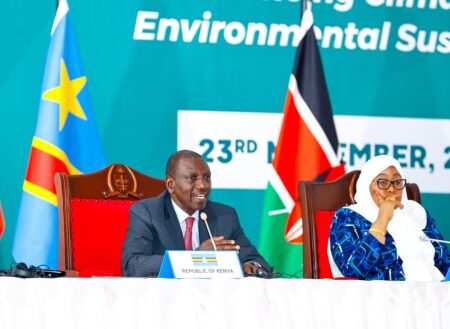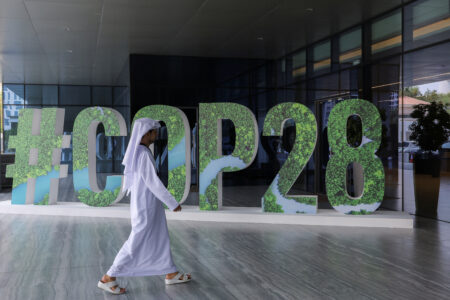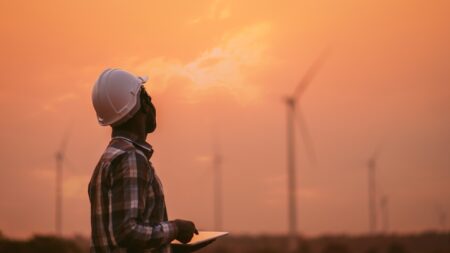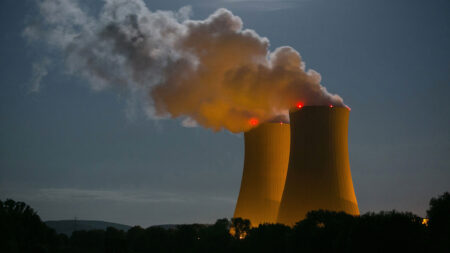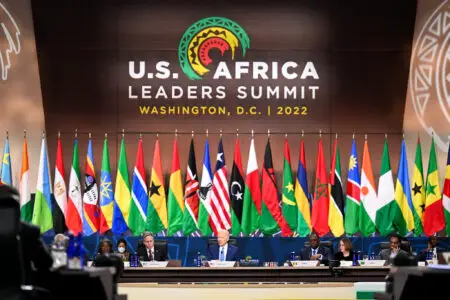- ATIDI and ASF unite to mitigate risks gripping Africa’s investment
- Turkey Brokers a Dispute Ceasefire Between Ethiopia and Somalia
- BRICS antitrust authorities turn the heat on trade platform Covantis
- From fossil fuels to green futures: Oxford and EBC Financial Group on what’s holding us back
- Africa’s natural resources: Will Trump’s policies benefit or exploit the continent?
- US Sanctions Zimbabwe’s gold smuggling Kingpin Kamlesh Pattni
- From Industry 5.0 to Future Finance: AIM Congress 2025’s bold agenda, key partners unveiled
- John Mahama Makes a Comeback as Ghana’s President
Browsing: energy transition
- Africa’s low electricity access stresses the need to double more than the efforts to meet SGD 7.1 by 2030.
- In Kenya, data by the lender shows 71 per cent of the population had access to electricity in 2021, compared to about 14 per cent in 2000.
- World Bank further identifies a stark divide in global access to electricity between urban and rural areas.
Sub-Saharan African states have made tremendous progress in electricity access in the past two decades, with the access rate rising from 25 per cent in 2000 to 48 per cent in 2020.
However, according to the World Bank, countries must double their electrification efforts to bring electricity to all by 2030, meeting Sustainable Development Goal Seven.
“Global access to electricity is increasing at a slow pace, with the progress towards achieving universal access to electricity being slow over the last 20 years,” …
- There is a Climate Funding gap of 40 billion dollars in blue carbon, yet no Kenyan firms are undertaking it.
- According to the World Bank, Kenya remains vulnerable to frequent climatic shocks that pose significant economic risks.
- The East African country has been gravely affected by changing weather patterns and a fall in disposable income available for necessities.
Despite their considerable potential, Kenya is foregoing billions of dollars in untapped climate financing opportunities. While many startups are entering this sector, industry experts argue that the current figure remains insufficient to combat climate change adequately.
Pangea Accelerator, an investment platform that provides funding for startups and small and medium enterprises (SMEs), says that the region needs to grow the number of startups, fully focusing on the environment. The Founder of Pangea, Jonas Tesfu, says that as a country, Kenya needs to have a lot of innovative businesses join climate change initiatives …
- The reward for fixing the carbon credit trade could be enormous, especially for Africa’s energy transition.
- The $2 billion global trade in voluntary carbon markets (VCMs) has suffered from greenwashing allegations, with prices plummeting from the 2022 peaks.
- For some African climate-linked businesses, the successful functioning of the carbon credits market is not a nice one but is core to their operating strategy.
Highly indebted nations need all the financing available to support their energy transition and climate adaptation needs. With the developed world lagging on its climate funding pledges, market-based solutions provide a supplementary funding source.
Carbon credits, a tradeable instrument obtained when a tonne of carbon is avoided or withdrawn from the atmosphere, have always offered significant optimism. With swaths of carbon-capturing biodiversity in the global south, Africa has the supply, while the industrialised nations looking to offset their emissions have the demand. Buyers then channel the finances …
- Global oil and gas producers have remained under immense pressure to show more goodwill in the energy transition agenda.
- As this year’s climate summit enters its homestretch, the most intriguing question is whether the final accord will pledge to reduce fossil fuels.
- The oil and gas industry’s confidence has also caused tension with renewable groups and climate activists.
The 2015 Paris Agreement establishes measures and conditions requiring all member states to mitigate climate change through emission reductions. Further, Goal 7 of the 2030 Agenda for Sustainable Development calls for concerted efforts to ensure access to modern, cleaner forms of energy, while Goal 13 calls for action to combat climate change.
Consequently, the global energy transition is on the cards. There have been calls from the global north to the south for the world to find a proper compromise on energy needs even as climate change effects put sterner demands on …
- Around 200 countries have agreed on how to run the Climate Loss and Damage Fund to help vulnerable nations address more extreme weather conditions.
- Germany and the UAE have pledged $100 million each to the climate damages initiative.
- The World Bank will host the Climate Loss and Damage Fund on a trial basis.
Around 200 countries have agreed on how to run the Climate Loss and Damage Fund to help vulnerable nations address more extreme weather conditions. Consequently, rich nations have pledged at least $260 million to kickstart the program, making a breakthrough as global climate deliberations opened in Dubai, the United Arab Emirates (UAE).
Delegates at the COP28 summit on Thursday adopted a framework for the World Bank to host the Loss and Damage Fund following months of negotiations. This year’s host, the UAE, indicated it would contribute $100 million, adding another $100 million from Germany. The United Kingdom …
- The ACG financing will support sustainability in Africa initiatives such as energy security and transition.
- It will also support regional integration and connectivity, trade finance and facilitation, gender and youth initiatives.
- ACG has been a long-standing supporter of African countries and has invested over $220 billion in the region.
Stepping up their support for African partner countries ahead of the COP28 climate change conference, the Arab Coordination Group (ACG) has announced it will allocate up to $50 billion to help build resilient infrastructure and inclusive societies in Africa.
COP28, held from 30 November to 12 December 2023 in Dubai, signifies a crucial moment in the global endeavor to tackle climate change. Notably, it will witness the completion of the initial worldwide assessment of the Paris Agreement, providing the international community a pivotal chance to adjust course and enhance collective commitment to restrict warming to 1.5°C.
The announcement of $50 …
Africa’s nuclear energy sector has undergone quite a transformation, with multiple governments moving past traditional energy sources to new, greener, and more sustainable ones. Nuclear energy has been a hot topic for most governments, with countries such as South Africa and Uganda releasing project plans for nuclear power plants. In recent news, Tanzania shocked the globe by revealing its nuclear energy plans at the Second Russia-Africa Summit. With these new developments, Tanzania has cast the die stating its intent to outpace its peers and dominate the upcoming era of technology.…
In recent years, Africa has emerged as a promising destination for global investment, with its vast natural resources, expanding consumer markets, and growing middle class. As the continent’s economies continue to strengthen and diversify, global players increasingly recognise the potential for mutually beneficial partnerships. The United States has significantly contributed to Africa’s economic transformation among these partners.…
[elementor-template id="94265"]
